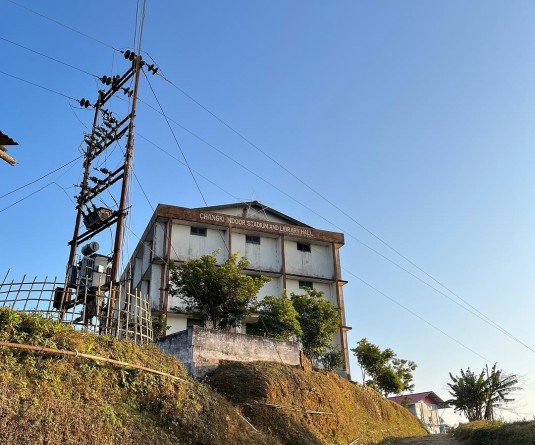
Morung Express News
Kohima | May 17
A workshop on the ‘Complexities and contradictions of News reporting’, organised by the Department of Information & Public Relations (IPR), Government of Nagaland was held on May 17 at the Capital Convention Centre, Kohima.
The resource persons for the workshop were Pradip Phanjoubam, Founder of Imphal Free Press, who spoke on Basics of News Reporting; Dr. Aküm Longchari, Editor, The Morung Express who spoke on Reflections on Media in Nagaland and Dzüvinuo Theünuo, Joint Director, DIPR, who spoke on the dynamics of Government public relations.
Dzüvinuo Theünuo emphasised on the role of government public relations, its functions, elements and processes.
Stating that the media in Nagaland has grown in numbers as well as strength, Limawati Ao, Director IPR asserted that the press in Nagaland is feared today by people in power. Ao also impressed on the importance of a free press in a democratic state.
Pradip Phanjoubam, Editor of Imphal Free Press spoke on investigative journalism, paid news and journalist's integrity. Providing the basic skills of writing reports, Pradip stated that the power of the press is derived from its simplicity, where every citizen can relate to. While discussing on the emergence of problems in journalism today such as paid news, he pointed out the complexities of the press in the North East states. Journalists here, he stated, are often poorly paid and most media houses lack manpower. Further, he stated that election reporting, like any other beat, requires an in depth study of the electoral policies by the reporter before reporting.
With media practitioners engaging with power every day, Dr. Longchari meanwhile stated the importance of getting to the heart of power which touches many aspects of society, and questioned if journalists in Nagaland are using the media for positive social change or using media for substantiating the status quo.
“If we say media has a role in social change then we have to confront the system. We have to get to the root of it,” said Dr. Longchari.
He also pointed out that it is essential for the IPR not to have a one way process of information but also to have a two way process where they have to include information from the grassroots and take it to the policy makers.
The standing point of the media practitioners was also raised where he said, “Depending on where your standing point is, that will define your news and we see that every day in our newspapers. That is at the heart of the complexities and contradictions.”
“We say that we want change but we are ignoring the very people who need to be empowered. Are we not contradicting our purpose with our actions? This is the bare reality. At the heart of our work is the question of power,” he said.
Dr. Longchari further viewed that Naga journalists need an ideology, a conceptual reasoning, and that every media house must have an internal dialogue and assessment. “The media in Nagaland has grown in form but we are yet to grow in substance. In the substance, we have to really push ourselves.”
Urging the reporters to start focusing on the peripheries of the state which will compel the people in power to initiate development in the neglected areas, he concluded by saying that “where the influence of the Newspapers are, is the area where you will see some semblance of development. Where the newspapers have some influence, the government is compelled out of necessity to initiate some semblance of development. But in the areas where the newspapers don’t have influence are the areas where the State ends.”
During the workshop, the participants from the various media houses internally assessed the complexities and contradictions faced by reporters in Nagaland.
The threats to the media discussed included pressure from government agencies, security forces, political parties, groups and other organisations.
Meanwhile, the participants also dwelt on the weaknesses of the media in Nagaland. These included poor investigative journalism/inaccurate reports, lack of specialization and manpower, lack of professionalism, dependence on press releases, Poor salaries/incentives/no promotional scope/pension benefits, and the lack of motivation and discipline.





